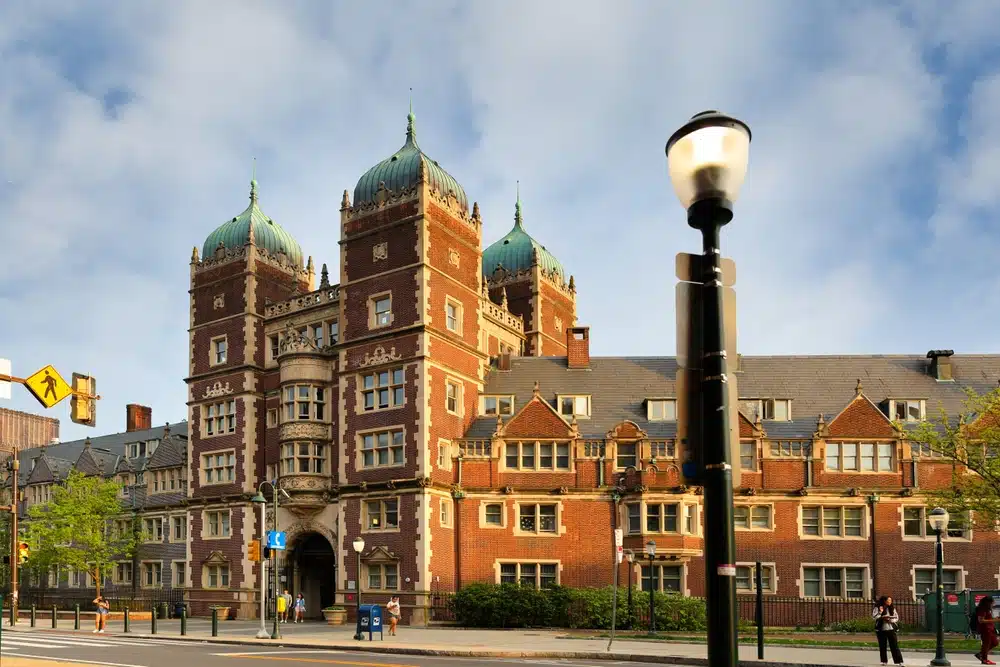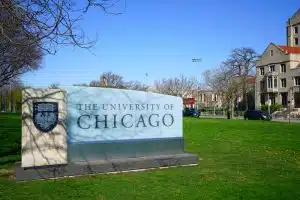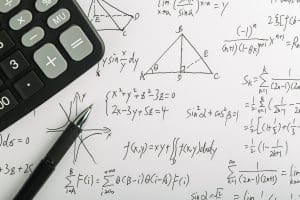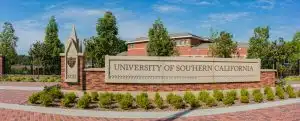Welcome to the comprehensive guide to the UPenn academic calendar, which is your key to navigating the academic year at the University of Pennsylvania. In this detailed exploration, we’ll unravel the significance of the UPenn academic calendar and how it can empower you to stay organized, plan your academic journey, and make the most of your time at this esteemed institution.
Understanding the UPenn Academic Calendar
The UPenn academic calendar is a detailed schedule of all the academic activities planned for the year at UPenn. It is published by the Registrar’s Office and is an important tool for every student, faculty member, and staff person.
Importance of the Academic Calendar
Knowing what is coming up and when allows you to plan your time effectively. It gives you a comprehensive overview of semesters’ lengths, vacation periods, exam schedules, and special events. Having this information at your fingertips aids in managing your commitments and expectations.
One of the key benefits of the UPenn academic calendar is that it helps students prioritize their workload. By having a clear understanding of when exams are scheduled, students can allocate their study time accordingly. This ensures that they are adequately prepared and can perform at their best during these crucial assessments.
Furthermore, the academic calendar also plays a vital role in helping faculty members plan their courses and assignments. By knowing the start and end dates of each semester, instructors can design their syllabi in a way that optimizes the learning experience for students. They can strategically schedule assignments, projects, and presentations to ensure a well-paced and balanced curriculum.
Structure of the Academic Calendar
The academic calendar is organized in a logical and easy-to-understand format. It contains the dates for both the fall and spring semesters, as well as the shorter but intensive summer sessions. It provides start and end dates for each semester, schedules for exams, official University holidays, and periods of recess. Additionally, it also includes dates for admissions-related activities and special events such as commencements, homecoming, and motor board weekends.
Within the academic calendar, students can find detailed information about the various breaks throughout the year. These breaks provide students with an opportunity to recharge and relax before diving back into their studies. Whether it’s a short recess during the fall semester or the longer winter break, these periods of downtime are crucial for maintaining a healthy work-life balance.
Moreover, the academic calendar also highlights important events that contribute to the vibrant campus life at UPenn. From homecoming celebrations that bring together current students and alumni to commencement ceremonies that mark the culmination of years of hard work, these special events create a sense of community and pride among the UPenn population.
Additionally, the academic calendar includes dates for admissions-related activities. Prospective students can refer to these dates to plan their visits to the campus, attend information sessions, and interact with current students and faculty members. This ensures that prospective students have a comprehensive understanding of UPenn’s academic environment and can make informed decisions about their educational journey.
In conclusion, the UPenn academic calendar serves as a valuable resource for students, faculty, and staff. Its comprehensive and well-organized structure allows individuals to plan their time effectively, prioritize their workload, and participate in various campus events. By providing a clear overview of the academic year, the academic calendar contributes to the success and enriching experience of the UPenn community.
Key Dates in the UPenn Academic Calendar
Once you’ve got a handle on the structure of the UPenn academic calendar, you can begin to plan around the key dates and events that pertain to you.
Start and End of Semesters
The academic year at UPenn is split into three semesters: Fall, Spring, and Summer. The Fall semester generally starts in late August or early September and runs through December. During this time, the campus is abuzz with excitement as new and returning students settle into their classes and get involved in various activities and organizations. The vibrant fall foliage adds to the picturesque atmosphere, creating a beautiful backdrop for academic pursuits.
The Spring semester picks up in January and concludes in early May. As the winter snow melts away, students eagerly anticipate the arrival of spring. The campus comes alive with blooming flowers and the sound of birds chirping, creating a refreshing and invigorating environment for learning. This semester is often filled with research projects, internships, and other experiential learning opportunities that allow students to apply their knowledge in real-world settings.
The Summer semester, usually optional for most students, runs from May to August. This period offers a chance for students to take additional courses, participate in internships, or engage in research projects. The campus may have a more relaxed atmosphere during the summer, with fewer students on campus and a slower pace of life. However, there are still plenty of academic and social activities available for those who choose to stay.
Here’s a detailed look at the key dates for the upcoming academic year:
2023 FALL TERM
- New Student Orientation: August 23-28
- Second-Year Orientation: August 27-September 1
- Opening Exercises and Convocation: August 28
- First day of classes: August 29
- Labor Day (no classes): September 4
- Course Selection Period ends: September 12
- Drop Period ends: October 9
- Indigenous People’s Day (University open; Classes in session): October 9
- Fall Term Break: October 12-15
- Classes resume: October 16
- Grade Type Change Deadline: October 27
- Family Weekend (Brown): October 27-29
- Advance Registration for Spring Term: October 30-November 13
- Homecoming (Cornell): November 4
- Last day to withdraw from a course: November 6
- Thur-Fri class schedule on Tue-Wed: November 21-22
- Thanksgiving Break: November 23-26
- Classes resume: November 27
- Last day of classes: December 11
- Reading Days: December 12-13
- Final Examinations: December 14-21
- Fall Term ends: December 21
2024 SPRING TERM
- MLK, Jr. Day observed (no classes): January 15
- First day of classes: January 18
- Course Selection Period ends: January 31
- Drop Period ends: February 27
- Spring Term Break: March 2-10
- Classes resume: March 11
- Grade Type Change Deadline: March 22
- Advance Registration for Fall Term: March 25-April 8
- Registration for Summer Session Begins: March 25
- Last day to withdraw from a course: April 2
- Last day of classes: May 1
- Reading Days: May 2-5
- Final Examinations: May 6-14
- Spring Term ends: May 14
- Alumni Day: May 18
- Baccalaureate: May 19
- Commencement: May 20
2024 SUMMER TERM
- Memorial Day observed (no classes): May 27
- 11-Week Session classes begin: May 28
- Session I classes begin: May 28
- Juneteenth (no classes): June 19
- Session I classes end: July 3
- Independence Day observed (no classes): July 4
- Session II classes begin: July 5
- Session II & 11-Week Session classes end: August 9
Holiday Breaks and Vacations
Holiday breaks are a staple in the academic calendar and serve as essential downtime for students. The most notable breaks during the academic year include Thanksgiving Break, Winter Recess, and Spring Break. These breaks not only allow students a much-needed holiday but also provide the opportunity to catch up on academic work, spend time with family and friends, or explore new destinations.
Thanksgiving Break, typically a week-long break in late November, is a time for students to express gratitude and enjoy a well-deserved rest. Many students take this opportunity to travel back home and reunite with their families, indulging in traditional Thanksgiving feasts and creating lasting memories.
Winter Recess, which usually spans a few weeks in December and January, coincides with the holiday season. The campus is adorned with festive decorations, and students have the chance to celebrate various holidays, such as Christmas, Hanukkah, and New Year’s Eve. It’s a time for relaxation, reflection, and rejuvenation before diving into the new year.
The Spring Break, typically occurring in March, offers a chance for students to take a breather and recharge their batteries. Some students choose to embark on exciting adventures, exploring new cities or even traveling abroad. Others may opt for a more laid-back break, enjoying leisure activities and taking time for self-care.
Exam Periods
Exam periods are another key feature of the academic calendar. The exact schedule often varies from one faculty to another, but generally, mid-term exams occur around the middle of each semester, while final exams take place in the last two weeks of each semester. These periods require intense focus and planning from students.
Mid-term exams serve as checkpoints for students to assess their understanding of the course material and make any necessary adjustments to their study strategies. They provide an opportunity for students to gauge their progress and seek assistance if needed.
Final exams, on the other hand, are the culmination of the semester’s learning. They test students’ knowledge and comprehension of the entire course and often carry significant weight in determining their final grades. During this period, the library becomes a hub of activity as students gather in study groups, review lecture notes, and engage in last-minute preparations.
While exam periods can be stressful, they also present an opportunity for students to demonstrate their knowledge and showcase their academic abilities. Effective time management, self-discipline, and a healthy balance of study and self-care are crucial during these periods to ensure success.
Special Events in the UPenn Academic Calendar
Beyond the standard academic scheduling, the UPenn academic calendar also includes several special events.
Commencement Dates
Commencements, the highlight of every student’s academic journey, are held annually in May at the close of the Spring semester. The academic calendar typically includes the schedules of various commencement ceremonies, such as the main commencement and individual department convocations.
During these ceremonies, students proudly don their caps and gowns, symbolizing their hard work and dedication throughout their time at UPenn. Family and friends gather to witness this momentous occasion, filling the campus with joy and excitement. The air is filled with anticipation as graduates prepare to embark on the next chapter of their lives.
Commencement speeches are delivered by distinguished individuals who inspire and motivate the graduating class. These speeches offer words of wisdom and encouragement, reminding graduates of the impact they can make in the world.
Homecoming and Reunion Weekends
Homecoming and reunion weekends, packed with numerous events and celebrations, are annual traditions that usually take place in the Fall semester. These weekends create a vibrant atmosphere on campus, reconnecting alumni with their alma mater and creating a sense of community among students and faculty.
During homecoming, the campus comes alive with spirited activities, including parades, tailgating parties, and football games. Alumni from various graduating classes return to UPenn, reminiscing about their college days and reconnecting with old friends. The campus is filled with laughter, nostalgia, and a strong sense of pride.
Reunion weekends provide an opportunity for alumni to reunite with their former classmates and professors. They attend special events, such as class dinners and panel discussions, where they can share their experiences and insights gained since graduation. These weekends foster a sense of belonging and strengthen the bonds between alumni and the university.
Special Lectures and Conferences
The academic calendar also includes information about annual lectures, workshops, symposiums, and conferences held by different departments. These events offer valuable learning and networking opportunities for students.
Renowned experts and scholars are invited to deliver special lectures, sharing their knowledge and expertise with the UPenn community. These lectures cover a wide range of topics, from cutting-edge research in science and technology to thought-provoking discussions on social issues.
Workshops and symposiums provide a platform for students to engage in interactive learning experiences. They can participate in hands-on activities, collaborate with peers, and gain practical skills that complement their academic studies.
Conferences attract professionals and researchers from around the world, creating a dynamic environment for the exchange of ideas and the exploration of new frontiers in various fields. Students have the opportunity to attend presentations, network with experts, and even present their own research findings.
These special lectures and conferences enrich the academic experience at UPenn, exposing students to diverse perspectives and fostering intellectual growth.
How to Access the UPenn Academic Calendar
Staying informed about all these critical dates and events is easier than ever, thanks to multiple ways of accessing the academic calendar.
As a student at the University of Pennsylvania, it is essential to keep track of important dates and events throughout the academic year. From registration deadlines to exam schedules, the academic calendar serves as a comprehensive guide to ensure that students stay organized and prepared. Fortunately, UPenn provides various methods for accessing this valuable resource.
Online Access
The simplest and most convenient way to access the academic calendar is online via the university’s website. This user-friendly platform allows students to navigate through the calendar effortlessly. With just a few clicks, students can find detailed information about important dates, such as the start and end of each semester, holidays, and academic deadlines.
Moreover, the online version of the academic calendar is regularly updated to reflect any changes. This ensures that the information students see is always up-to-date and accurate. Whether checking the date of a final exam or planning for a study break, online access to the academic calendar provides students with the necessary information to make informed decisions.
Mobile App Access
For those constantly on the move, the University of Pennsylvania provides a powerful tool to simplify your school life—the PennMobile app. In addition to accessing the academic calendar, this app offers a wide range of features designed to streamline your daily campus experience.
With it, you can conveniently book study rooms, check dining hall hours, stay updated on your course schedule, view daily menus, check laundry machine availability, access fitness facility hours, and even have quick access to emergency services.
Created by students in Penn Labs, the PennMobile app is here to make your life at UPenn more straightforward and efficient. Whether you need to check your academic schedule, grab a quick bite to eat, or find a free laundry machine, this app has got you covered, ensuring that you can make the most of your time at UPenn.
Tips for Managing Your Schedule Around the UPenn Academic Calendar
Now that you’re familiar with the structure, key components, and where to find the academic calendar, the next step is learning how to use it effectively.
Balancing Academics and Extracurriculars
One of the aspects of college life that often takes some adjustment is balancing academics with extracurricular activities. Refer to the academic calendar at the beginning of each semester to plan out your study and leisure times. Remember that both are crucial to a fulfilling college experience.
Planning for Breaks and Vacations
The academic calendar can also be helpful in leveraging breaks and vacations. Whether you plan to travel, visit family, or catch up on rest, knowing exactly when you’re free can lead to more effective planning.
Preparing for Exam Periods
Lastly, the academic calendar is an indispensable tool when it comes to preparing for exams. By knowing well in advance when your exams are scheduled, you can create a comprehensive study plan and manage your revision time effectively.
Overall, the UPenn academic calendar is more than just a schedule; it’s a powerful planning tool that can significantly enhance your college experience.
Having all the necessary information is important before choosing any course of action. AdmissionSight is always here to assist you with any questions or concerns. We have more than ten years of expertise assisting students in successfully navigating the challenging admissions process.
Consult with AdmissionSight and find out what we can do to help you get into the school of your choice by ensuring that you are sufficiently aware and well-prepared for the application process.









































